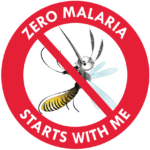Interventions
Organized malaria control efforts started in 1984 with the establishment of the National Malaria Control Programme (NMCP) to spearhead and coordinate responses to malaria control by both Malawi Government and the development partners.
Case Management
Malaria case management is one of the key interventions for malaria control in Malawi. It comprises malaria diagnostics and treatment at facility level (public, CHAM and private) as well as community level, therefore, the ultimate goal for this thematic area is to have all suspected malaria cases presenting to a health worker being tested and treated according to the national guidelines at health facility and community level.


Malaria in Pregnancy
Malaria infection during pregnancy is a major cause of maternal and neonatal death in Malawi. Owing to their suppressed immune system, pregnant women are particularly vulnerable to the disease. When it manifests during pregnancy, malaria predisposes women to negative pregnancy outcomes such as anaemia, spontaneous abortions, premature delivery, low birth weight, and/or perinatal death. Considering that malaria is endemic across the country, the malaria strategic plan provides for the delivery of a comprehensive package of interventions to minimize the occurrence of malaria in pregnancy.
Vector Control
In order to achieve the objective NMCP will implement the Integrated Vector Management (IVM) which has been promoted by World Health organization (WHO) as the strategic approach for malaria control. IVM is the targeted use of different vector control methods in isolation or in combination to prevent and reduce vector contact with humans cost effectively hence making the environment unsuitable for vector breeding.


Social & Behavior Change Communication (SBCC)
The Social and Behavior Change Communication (SBCC) intervention basically supports the implementation of technical strategies such as vector control and case management. Effective SBCC strategies help to raise awareness; create demand for the various malaria control strategies; facilitate adoption and maintenance of positive behaviors; and mobilize affected communities to participate in malaria control programming in order to achieve sustainable impact.
Procurement & Supply Chain Management
Efficient and effective procurement and supply chain management (PSM) are fundamental to ensure malaria commodity availability throughout the health system, the Ministry of health MOH’s long-term objective is to establish a reliable, integrated national supply chain system capable of delivering health commodities to all public sector facilities as well as Christian Health Association of Malawi (CHAM)affiliates. The current national system is designed to deliver health commodities from the Central Medical Stores Trust (CMST) to regional medical stores (RMS), district hospitals, and health centres. Beyond health centres, it is the community health workers who handle selected commodities and disperse them through under-five and village clinics.


Surveillance Monitoring, Evaluation & Operation Research
SMEOR is one of the crosscutting thematic areas of the malaria strategic plan and an essential component for the success of the malaria control program. A functional SMEOR system ensures that good quality; accurate, complete and reliable malaria data information is collected, collated, analyzed, and used to measure program performance and progress.
The objective of SMEOR is to improve malaria monitoring and evaluations systems towards achievement of enhanced data and program accountability by 2022.

